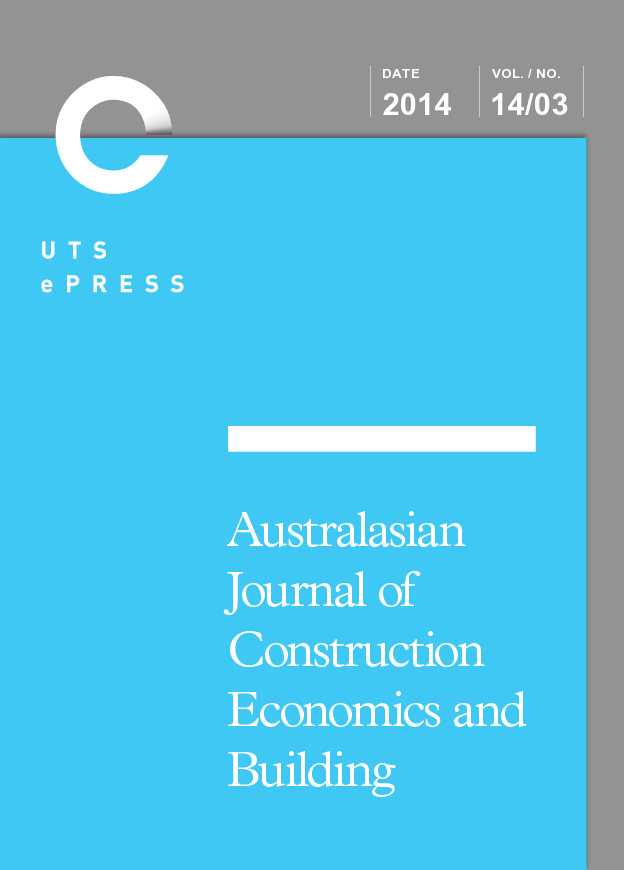Prioritising Project Scope Definition Elements in Public Building Projects
Main Article Content
Abstract
A complete definition of the scope of a project upfront during early stages ensures smooth and successful implementation during the project execution. This research identifies and prioritises project scope definition elements for public buildings in Saudi Arabia. Elements that could significantly contribute to complete project scope definition package at pre-project planning stage are identified and their interrelationship determined and prioritised. Using the Project Definition Rating Index (PDRI) as a basis, the study uses analytical network process (ANP) technique based on data obtained from project managers who have been involved in public sector projects in Saudi Arabia. Data collection and analysis was conducted in three steps. The first step involved identification of scope definition elements while the second involved an investigation into interrelationships among the elements. In the third step, ANP was used to determine the weight of the elements’ importance in terms of contribution to project scope definition completeness. Finally, Pareto analysis was used to prioritise and assess the distribution pattern of the elements. The outcome from this research is the prioritisation of project scope definition elements for public building projects in Saudi Arabia. The prioritised list developed indicates the importance of project scope definition elements. It should help project management teams identify elements to consider when evaluating project scope definition for completeness at the pre-project planning stage.
Keywords: Project scope definition, pre-project planning, prioritising, public building projects, Saudi Arabia, Analytical Network Process (ANP)
Article Details
Section
Authors who publish with this journal agree to the following terms:
a) Authors retain copyright and grant the journal right of first publication with the work simultaneously licensed under a Creative Commons Attribution License that allows others to share and adapt the work with an acknowledgement of the work's authorship and initial publication in this journal.
b) Authors are able to enter into separate, additional contractual arrangements for the non-exclusive distribution of the journal's published version of the work (e.g., post it to an institutional repository or publish it in a book), with an acknowledgement of its initial publication in this journal.
c) Authors are permitted and encouraged to post their work online (e.g., in institutional repositories or on their website) prior to and during the submission process, as it can lead to productive exchanges, as well as earlier and greater citation of published work (See The Open Access Citation Advantage Service). Where authors include such a work in an institutional repository or on their website (ie. a copy of a work which has been published in a UTS ePRESS journal, or a pre-print or post-print version of that work), we request that they include a statement that acknowledges the UTS ePRESS publication including the name of the journal, the volume number and a web-link to the journal item.
d) Authors should be aware that the Creative Commons Attribution (CC-BY) License permits readers to share (copy and redistribute the work in any medium or format) and adapt (remix, transform, and build upon the work) for any purpose, even commercially, provided they also give appropriate credit to the work, provide a link to the license, and indicate if changes were made. They may do these things in any reasonable manner, but not in any way that suggests you or your publisher endorses their use.
